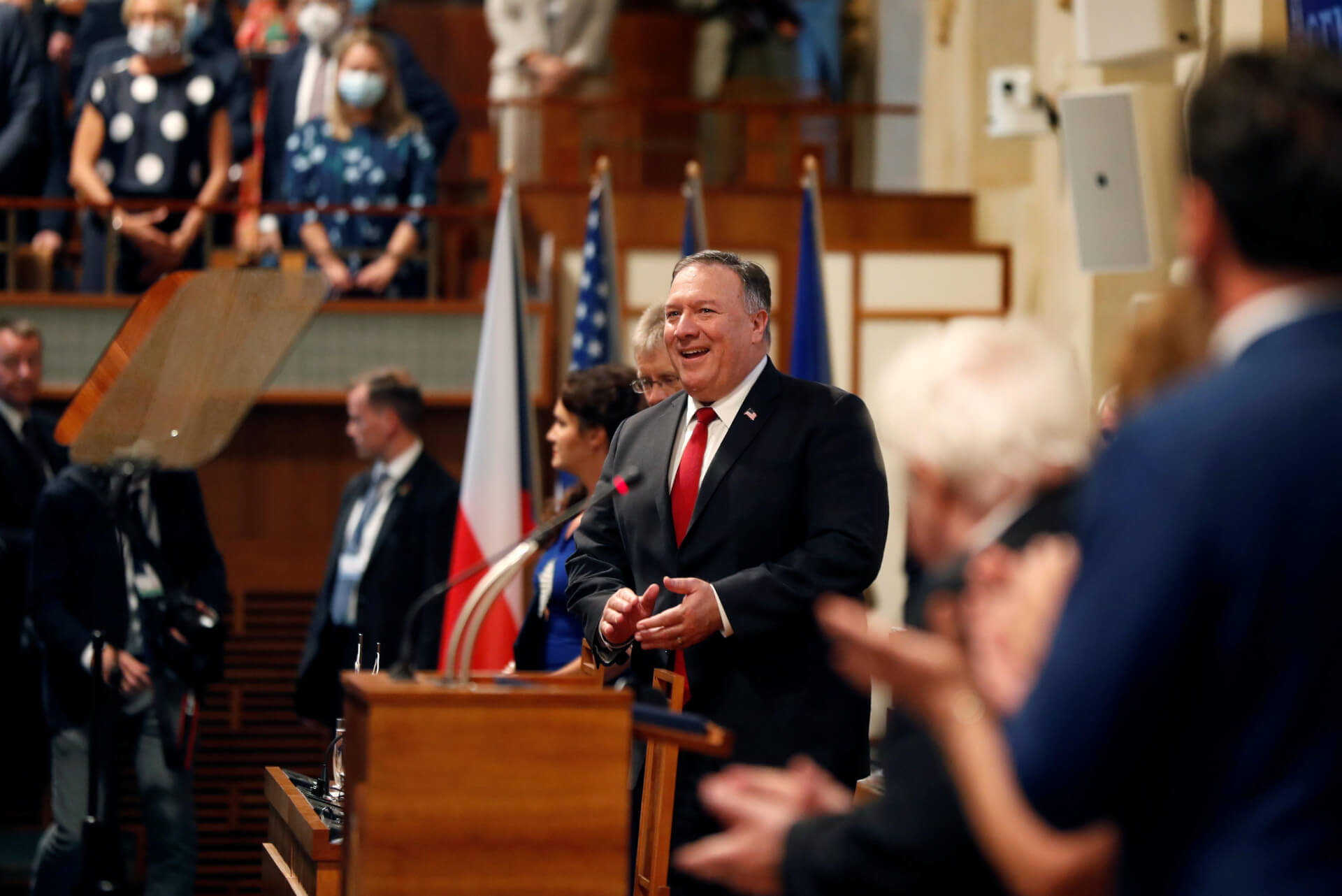US Secretary of State Mike Pompeo kicked off his 5-day central Europe tour in Prague on Tuesday, where confronting Russian and Chinese economic and geopolitical competition in Europe dominated the agenda. Pompeo is in the region to discuss cyber and energy security with European allies.
The US’ top diplomat met with Prime Minister Andrej Babis on Wednesday, and, in a speech to Czech lawmakers later that day, he urged them to take a strong stand against creeping Russian and more importantly Chinese influences, which he said were far more dangerous than the former Soviet Union. “The challenge of resisting the Chinese Communist Party (CCP) threat is in some ways much more difficult,” Pompeo said. “The CCP is already enmeshed in our economies, in our politics, in our societies in ways the Soviet Union never was,” he added, referring to China’s “campaigns of coercion and control”. Pompeo urged the leaders to continue resisting Chinese attempts to assert economic and political leverage over their country.
Pompeo and Babis also discussed energy policy and Czech’s plans for a new 5G cellular network. Here again, he warned of partnering with Russia and China on these projects, asserting that there were real risks to national security and sovereignty that needed to be considered when undertaking such endeavors.
Pompeo’s next stop was Slovenia, where he met with Prime Minister Janez Jansa in the town of Bled on Thursday, to make a case for high-speed wireless networks that bar Chinese companies like Huawei. The leaders signed a joint declaration on “5G Clean Network Security”, which aims to keep untrusted telecommunications vendors out of Slovenia. The US has engaged in a worldwide campaign against Chinese companies that it accuses of sharing sensitive data and personal information with China’s security services. The effort has yielded mixed results, but Slovenia has joined forces with America.
The document states that “protecting communications networks from disruption or manipulation, and ensuring the privacy and individual liberties of the citizens of the United States and Slovenia are vital to ensuring that our people are able to take advantage of the tremendous economic opportunities 5G will enable”.
Last month, Slovenia introduced a nationwide commercial 5G network in partnership with Swedish telecoms giant Ericsson, which US authorities frequently cite as a “trusted” alternative to Huawei. “The tide is turning against the Chinese Communist Party and its efforts to control information,” Pompeo said.
Besides 5G, the leaders also discussed energy security. The US is working to reduce European dependence on Russia for oil and gas and has launched efforts to help the continent diversify its energy sources. The US has even offered itself as an alternative supplier of fuel to Europe and has promoted nuclear energy. Ironically, this comes at a time when Russian fuel exports to the United States (US) are nearing record levels, as the US is looking to replace Venezuela with an alternative provider of heavy fuel to American refineries. From January to June of this year, oil shipments from Russia to the US were marked at 5.3 million tons, well on track to match the record high from 2019, even in spite of reduced demand during the coronavirus pandemic.
Pompeo Uses Europe Tour to Warn Allies Against Engagement With China and Russia
The US' top diplomat is in the region to discuss cyber and energy security with US allies.
August 14, 2020

SOURCE: REUTERS
